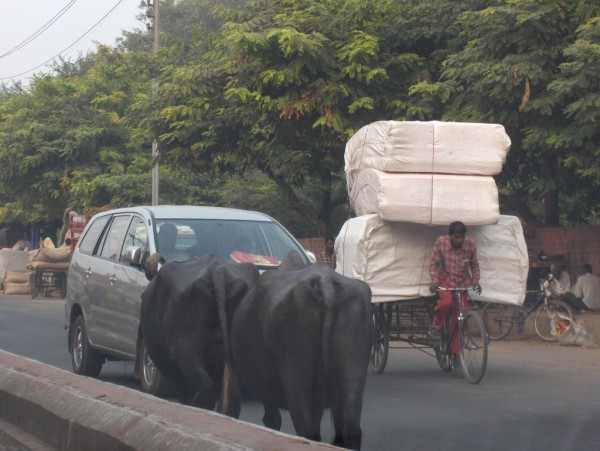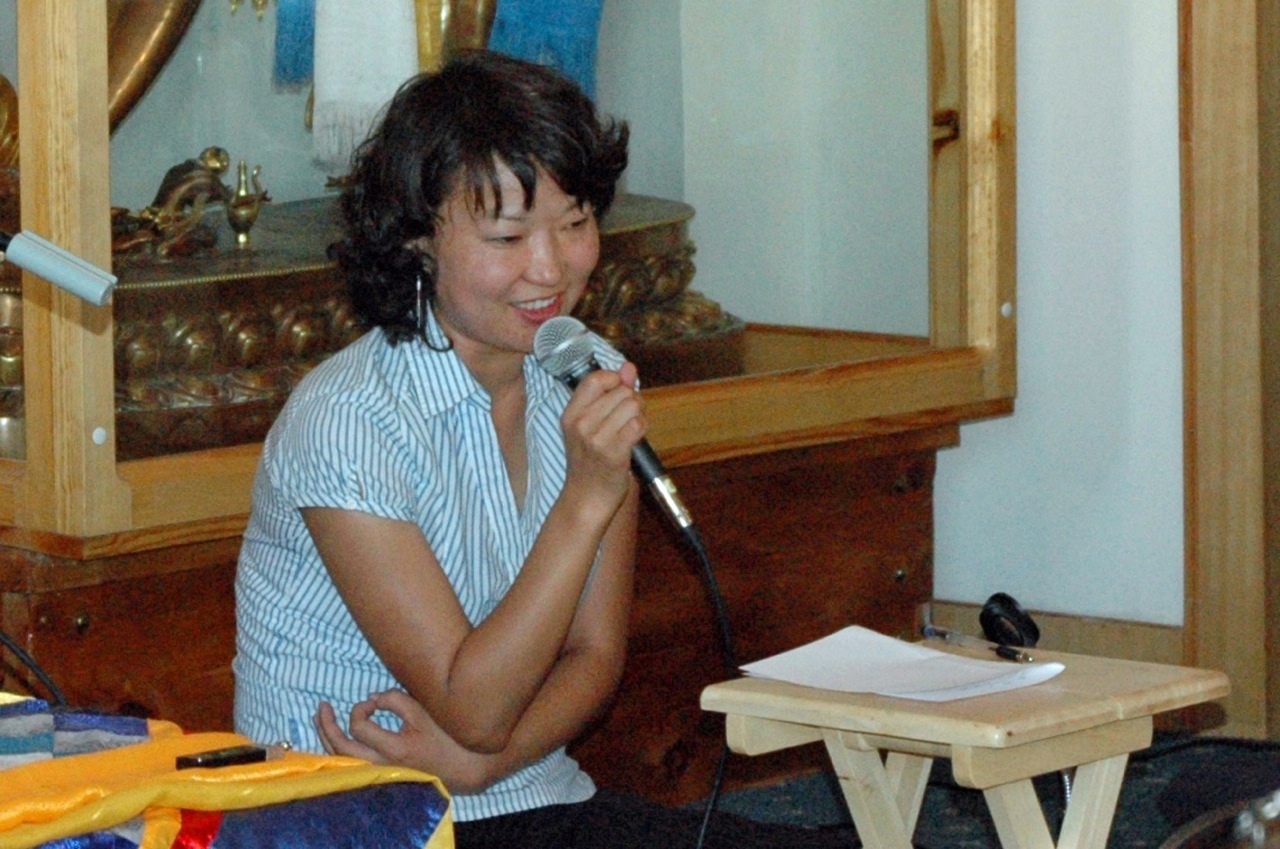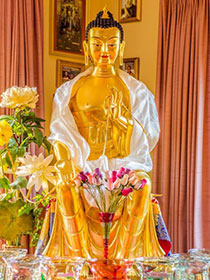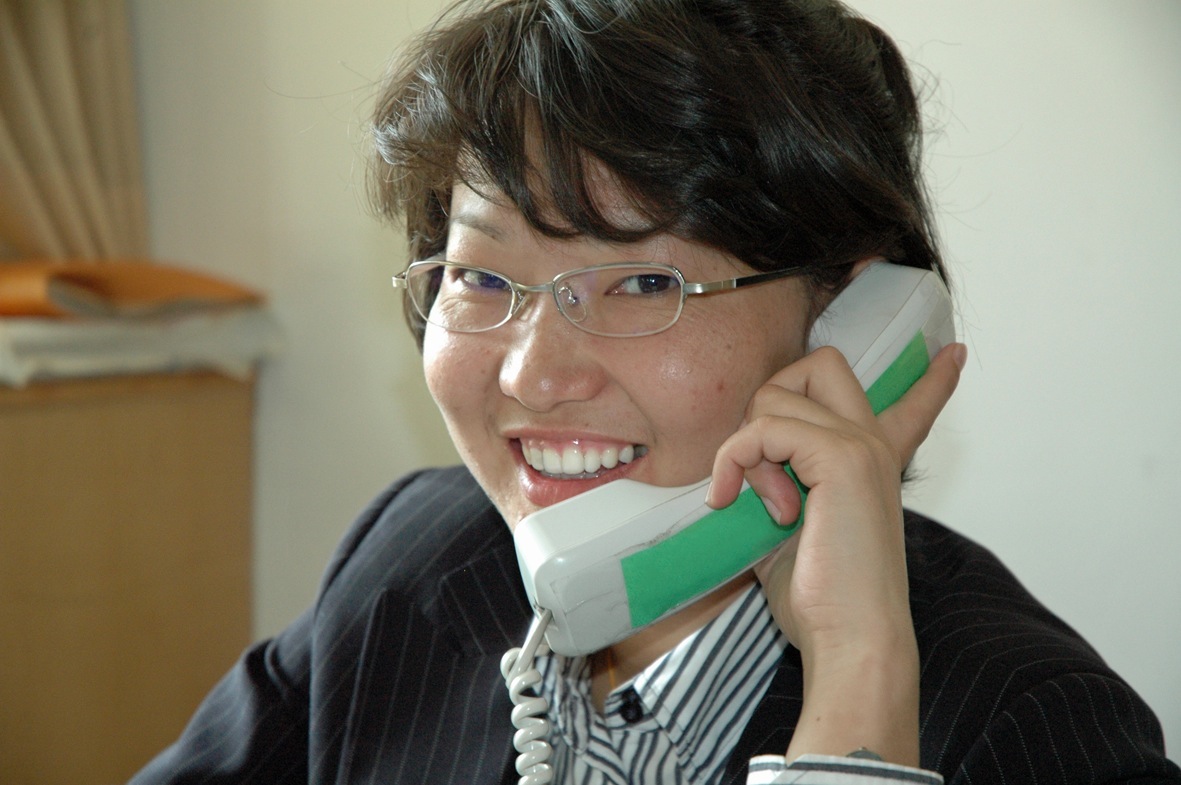- Home
- FPMT Homepage
Foundation for the Preservation of the Mahayana Tradition
The FPMT is an organization devoted to preserving and spreading Mahayana Buddhism worldwide by creating opportunities to listen, reflect, meditate, practice and actualize the unmistaken teachings of the Buddha and based on that experience spreading the Dharma to sentient beings. We provide integrated education through which people’s minds and hearts can be transformed into their highest potential for the benefit of others, inspired by an attitude of universal responsibility and service. We are committed to creating harmonious environments and helping all beings develop their full potential of infinite wisdom and compassion. Our organization is based on the Buddhist tradition of Lama Tsongkhapa of Tibet as taught to us by our founders Lama Thubten Yeshe and Lama Thubten Zopa Rinpoche.
- Willkommen
Die Stiftung zur Erhaltung der Mahayana Tradition (FPMT) ist eine Organisation, die sich weltweit für die Erhaltung und Verbreitung des Mahayana-Buddhismus einsetzt, indem sie Möglichkeiten schafft, den makellosen Lehren des Buddha zuzuhören, über sie zur reflektieren und zu meditieren und auf der Grundlage dieser Erfahrung das Dharma unter den Lebewesen zu verbreiten.
Wir bieten integrierte Schulungswege an, durch denen der Geist und das Herz der Menschen in ihr höchstes Potential verwandelt werden zum Wohl der anderen – inspiriert durch eine Haltung der universellen Verantwortung und dem Wunsch zu dienen. Wir haben uns verpflichtet, harmonische Umgebungen zu schaffen und allen Wesen zu helfen, ihr volles Potenzial unendlicher Weisheit und grenzenlosen Mitgefühls zu verwirklichen.
Unsere Organisation basiert auf der buddhistischen Tradition von Lama Tsongkhapa von Tibet, so wie sie uns von unseren Gründern Lama Thubten Yeshe und Lama Thubten Zopa Rinpoche gelehrt wird.
- Bienvenidos
La Fundación para la preservación de la tradición Mahayana (FPMT) es una organización que se dedica a preservar y difundir el budismo Mahayana en todo el mundo, creando oportunidades para escuchar, reflexionar, meditar, practicar y actualizar las enseñanzas inconfundibles de Buda y en base a esa experiencia difundir el Dharma a los seres.
Proporcionamos una educación integrada a través de la cual las mentes y los corazones de las personas se pueden transformar en su mayor potencial para el beneficio de los demás, inspirados por una actitud de responsabilidad y servicio universales. Estamos comprometidos a crear ambientes armoniosos y ayudar a todos los seres a desarrollar todo su potencial de infinita sabiduría y compasión.
Nuestra organización se basa en la tradición budista de Lama Tsongkhapa del Tíbet como nos lo enseñaron nuestros fundadores Lama Thubten Yeshe y Lama Zopa Rinpoche.
A continuación puede ver una lista de los centros y sus páginas web en su lengua preferida.
- Bienvenue
L’organisation de la FPMT a pour vocation la préservation et la diffusion du bouddhisme du mahayana dans le monde entier. Elle offre l’opportunité d’écouter, de réfléchir, de méditer, de pratiquer et de réaliser les enseignements excellents du Bouddha, pour ensuite transmettre le Dharma à tous les êtres. Nous proposons une formation intégrée grâce à laquelle le cœur et l’esprit de chacun peuvent accomplir leur potentiel le plus élevé pour le bien d’autrui, inspirés par le sens du service et une responsabilité universelle. Nous nous engageons à créer un environnement harmonieux et à aider tous les êtres à épanouir leur potentiel illimité de compassion et de sagesse. Notre organisation s’appuie sur la tradition guéloukpa de Lama Tsongkhapa du Tibet, telle qu’elle a été enseignée par nos fondateurs Lama Thoubtèn Yéshé et Lama Zopa Rinpoché.
Visitez le site de notre Editions Mahayana pour les traductions, conseils et nouvelles du Bureau international en français.
Voici une liste de centres et de leurs sites dans votre langue préférée
- Benvenuto
L’FPMT è un organizzazione il cui scopo è preservare e diffondere il Buddhismo Mahayana nel mondo, creando occasioni di ascolto, riflessione, meditazione e pratica dei perfetti insegnamenti del Buddha, al fine di attualizzare e diffondere il Dharma fra tutti gli esseri senzienti.
Offriamo un’educazione integrata, che può trasformare la mente e i cuori delle persone nel loro massimo potenziale, per il beneficio di tutti gli esseri, ispirati da un’attitudine di responsabilità universale e di servizio.
Il nostro obiettivo è quello di creare contesti armoniosi e aiutare tutti gli esseri a sviluppare in modo completo le proprie potenzialità di infinita saggezza e compassione.
La nostra organizzazione si basa sulla tradizione buddhista di Lama Tsongkhapa del Tibet, così come ci è stata insegnata dai nostri fondatori Lama Thubten Yeshe e Lama Zopa Rinpoche.
Di seguito potete trovare un elenco dei centri e dei loro siti nella lingua da voi prescelta.
- 欢迎 / 歡迎
简体中文
“护持大乘法脉基金会”( 英文简称:FPMT。全名:Foundation for the Preservation of the Mahayana Tradition) 是一个致力于护持和弘扬大乘佛法的国际佛教组织。我们提供听闻,思维,禅修,修行和实证佛陀无误教法的机会,以便让一切众生都能够享受佛法的指引和滋润。
我们全力创造和谐融洽的环境, 为人们提供解行并重的完整佛法教育,以便启发内在的环宇悲心及责任心,并开发内心所蕴藏的巨大潜能 — 无限的智慧与悲心 — 以便利益和服务一切有情。
FPMT的创办人是图腾耶喜喇嘛和喇嘛梭巴仁波切。我们所修习的是由两位上师所教导的,西藏喀巴大师的佛法传承。
繁體中文
護持大乘法脈基金會”( 英文簡稱:FPMT。全名:Found
ation for the Preservation of the Mahayana Tradition ) 是一個致力於護持和弘揚大乘佛法的國際佛教組織。我們提供聽聞, 思維,禪修,修行和實證佛陀無誤教法的機會,以便讓一切眾生都能 夠享受佛法的指引和滋潤。 我們全力創造和諧融洽的環境,
為人們提供解行並重的完整佛法教育,以便啟發內在的環宇悲心及責 任心,並開發內心所蘊藏的巨大潛能 — 無限的智慧與悲心 – – 以便利益和服務一切有情。 FPMT的創辦人是圖騰耶喜喇嘛和喇嘛梭巴仁波切。
我們所修習的是由兩位上師所教導的,西藏喀巴大師的佛法傳承。 察看道场信息:
- FPMT Homepage
- News/Media
-
- Study & Practice
-
-
- About FPMT Education Services
- Latest News
- Programs
- New to Buddhism?
- Buddhist Mind Science: Activating Your Potential
- Heart Advice for Death and Dying
- Discovering Buddhism
- Living in the Path
- Exploring Buddhism
- FPMT Basic Program
- FPMT Masters Program
- FPMT In-Depth Meditation Training
- Maitripa College
- Lotsawa Rinchen Zangpo Translator Program
- Universal Education for Compassion & Wisdom
- Online Learning Center
-
- Prayers & Practice Materials
- Overview of Prayers & Practices
- Full Catalogue of Prayers & Practice Materials
- Explore Popular Topics
- Benefiting Animals
- Chenrezig Resources
- Death & Dying Resources
- Lama Chopa (Guru Puja)
- Lama Zopa Rinpoche: Compendium of Precious Instructions
- Lama Zopa Rinpoche: Life Practice Advice
- Lama Zopa Rinpoche Practice Series
- Lamrim Resources
- Mantras
- Prayer Book Updates
- Purification Practices
- Sutras
- Thought Transformation (Lojong)
- Audio Materials
- Dharma Dates - Tibetan Calendar
- Translation Services
- Publishing Services
- Ways to Offer Support
- Prayers & Practice Materials
-
- Teachings and Advice
- Find Teachings and Advice
- Lama Zopa Rinpoche Advice Page
- Lama Zopa Rinpoche: Compendium of Precious Instructions
- Lama Zopa Rinpoche Video Teachings
- ༧སྐྱབས་རྗེ་བཟོད་པ་རིན་པོ་ཆེ་མཆོག་ནས་སྩལ་བའི་བཀའ་སློབ་བརྙན་འཕྲིན།
- Podcasts
- Lama Yeshe Wisdom Archive
- Buddhism FAQ
- Dharma for Young People
- Resources on Holy Objects
- Teachings and Advice
-
-
*If a menu item has a submenu clicking once will expand the menu clicking twice will open the page.
-
-
- Centers
-
- Teachers
-
- Projects
-
-
-
-
*If a menu item has a submenu clicking once will expand the menu clicking twice will open the page.
-
-
- FPMT
-
-
-
-
-
Cherishing others is the source of all happiness.
Lama Zopa Rinpoche
-
-
-
- Shop
-
-
-
The Foundation Store is FPMT’s online shop and features a vast selection of Buddhist study and practice materials written or recommended by our lineage gurus. These items include homestudy programs, prayers and practices in PDF or eBook format, materials for children, and other resources to support practitioners.
Items displayed in the shop are made available for Dharma practice and educational purposes, and never for the purpose of profiting from their sale. Please read FPMT Foundation Store Policy Regarding Dharma Items for more information.
-
-
Mandala
11
No tener reglas lo hace posible
La vida en el camino con Rimpoche
Traducido por Hilda Luisa Díaz-Perera
Dharamsala, India — el 2 de abril, 2012
De Ven. Roger:
Está muy oscuro. Hay una fuerte tormenta con ráfagas de viento y el camino es estrecho con espacio para que pase un sólo vehículo a la vez. El camino sigue el borde de un precipicio con una caída de al menos 1000 pies [305 metros] por un lado – te da vértigo mirar hacia abajo. El camino está en mal estado: a veces sólo gravilla y piedra, con demasiados huecos que batuquean el carro. Viene un camión directamente hacia nosotros en sentido contrario tocando la bocina con insistencia. (Los camiones en la India son grandes y pesados y frecuentemente se mantienen en una pieza amarrados con maderos. En realidad son grandes pedazos de chatarra sobre ruedas de llantas con poca o ninguna banda de rodamiento.) No tengo hacia dónde maniobrar (soy yo quien conduce) y no puedo calcular cómo evadir esta pila de desperdicios de metal sobre ruedas que se mueve como un cangrejo. Los caminos son tan estrechos que cuando aparece un vehículo en contravía, uno tiene que buscar rápidamente por dónde el camino es un poco más ancho para poder pasar los dos al mismo tiempo, sino uno de los dos debe parar y retroceder. Y aun así, podría ser largo el tramo, y podrías encontrarte otro carro detrás de ti que viene tocando la bocina y detrás, otro carro que viene tocando su bocina con apremio. En realidad los conductores en la India manejan con una sola mano en el manubrio y la otra sobre la bocina. De todas formas, logro con suerte encontrar un lugar por donde ambos podemos pasar y continuamos envueltos en una total oscuridad. El viaje es de 12 hora así es que debes mantenerte alerta todo el tiempo, digo, ¡bien alerta!

Camino indio. Foto John Haslam. Creative Commons (Flickr: foxypar4)
Todo el mundo tiene el derecho de vía en las carreteras y esto confunde, todo el mundo piensa que es dueño del camino que es el caso también de los peatones, las vacas, los perros y los burros … algo más temprano ese día nos encontramos con un tipo hablando por teléfono quien hacía rodar con sus pies un botellón de gas por el medio del camino y perdió el control que no pareció ser un problema para él ya que siguió hablando por teléfono a medida que el botellón de gas iba cobrando más velocidad y ¡venía directamente hacia nosotros! Lo esquivamos y todo bien como suele suceder en las carreteras de la India ya que no existen reglas así es que no hay nadie haciendo algo incorrecto así es que está bien … Me gusta sin reglas, pero me cuesta pasar en curvas ciegas, que es común. (Me pareció apropiado no poner puntos al describir las carreteras aquí.) (more…)
11
To Wear Pain Like an Ornament
Elea Redel discusses in “To Wear Pain Like an Ornament” how she learned from Lama Zopa Rinpoche to bring chronic pain and illness on the path. “Lama Zopa once told me that I should make my sickness my ornament,” Elea shares, “and that ornament represents the suffering of all sentient beings. So using my sickness like this is my job.”
From Mandala April 1990.
- Tagged: mandala, taking care of the self
- 0
10
FPMT News Around the World

Gunjiimaa translating in Mongolia
It is with sadness that we share the news of Gunjiimaa Ganbat passing away. After struggling with a very difficult to treat form of drug-resistant tuberculosis, Gunjiimaa died in Ulaanbaatar, Mongolia, on April 1, 2012. Gunjiimaa made significant contributions to the development of FPMT Mongolia, including serving as an FPMT Mongolia translator, as Ven. Thubten Gyatso’s (Adrian Feldmann) Mongolian translator and as the previous director of the FPMT center in Ulaanbaatar, Ganden Do Ngag Shedrup Ling, founded in 2000.
“Gunjii,” as she was fondly known, was also the driving force in connecting MK Sen, current CEO of FPMT Mongolia, with several parties able to offer the help and assistance needed for Rinpoche’s priority projects in Mongolia. Gunjii was part of the special team overseeing these projects. Her immense personal contributions to ensure the success of each project will remain as testimony of her faith and devotion to her guru, Lama Zopa Rinpoche. As MK puts it, “Gunjii will be irreplaceable and a great loss to FPMT Mongolia. We pray for her blessed rebirth.”
***
When reading an obituary or an announcement of death in Mandala, Lama Zopa Rinpoche advises that students make prayers for the recently deceased that they “find a perfect human body, meet a Mahayana guru and become enlightened quickly, or be born in a pure land where the teachings exist and they can become enlightened.”
Advice and practices for sickness and death can be found on Lama Zopa Rinpoche’s advice page and at the Foundation Store.
- Tagged: mongolia, obituaries, your community
- 0
9
Reflections on a Guru-Disciple Relationship
Roy Fraser reflects on his fifteen-year relationship with Geshe Ngawang Dhargyey (1921-1995). From Fraser’s first meeting with Gen Rinpoche to building the fully realized master’s cremation stupa, Fraser celebrates his connection and service to Gen Rinpoche.
From Mandala January-February 1996.
- Tagged: mandala, your words
- 0
5
Advice to Monks and Nuns at Kopan Monastery
Although directed at the nuns and monks of Kopan, Geshe Jampa Gyatso’s advice is pertinent to anyone, covers a broad range of topics and includes some interesting comparisons between how Westerners and Easterners approach the Dharma.
From Mandala October 1987.
- Tagged: mandala, teachings and advice
- 0
4
“The Twelve Links of Dependent Arising,” a play by Lama Zopa Rinpoche
“The Twelve Links of Dependent Arising,” Lama Zopa Rinpoche’s play about the evolution of samsara and the Buddhist approach to breaking free from it, can be performed by older children and adults. And for those who are stage shy, just reading the play gives a good overview of the Buddhist path.
From Mandala April 1988.
- Tagged: mandala, your words
- 0
2
Remember the Guru’s Kindness
In Remember the Guru’s Kindness, Rinpoche talks about how to best prolong the life of the guru, and how to avoid obstacles that can cause him sickness and a shortened life.
From Mandala April 1989.
- Tagged: mandala, teachings and advice
- 0
29
Meditation by the Compost Bin
A wonderful new blog post from Ven. Chönyi Taylor, “Meditation by the Compost Bin.”
23
Thangka Exhibition at Maitreya Instituut Amsterdam
“Thangka Exhibition at Maitreya Instituut Amsterdam” by Berty Sieverding, Ies Walker, Marlies Bruin. From Mandala April-June 2012.
- Tagged: mandala, your words
- 0
21
Sitting Easy
“Sitting Easy” by Julia Hengst. Uldis Balodis talked to Julia Hengst about how his specially designed meditation chair evolved. From Mandala April-June 2012.
- Tagged: mandala, practicing dharma in daily life
- 0
19
Postcard 20 from Robina: Stradbroke Island, Australia
A new Postcard from Robina, Ven. Robina Courtin’s blog about her travels and teachings around the world. “A month has passed since I was at Maitripa in Portland. It’s Tuesday March 6 and I’m in tropical Queensland, settling in for a month’s editing retreat. Kathleen Surawski has kindly offered me her house: a raised wooden structure with a deck, on a cliff overlooking the ocean at Point Lookout, on the tip of Stradbroke Island, just off the main coast, 20 miles east of Brisbane.”
- Tagged: blog, mandala, ven. robina courtin, your community
- 0
16
Retreat In Every Day Life
“Retreat in Everyday Life” by Pam Cayton. From Mandala April-June 2012.
- Tagged: mandala, practicing dharma in daily life
- 0
- Home
- News/Media
- Study & Practice
- About FPMT Education Services
- Latest News
- Programs
- New to Buddhism?
- Buddhist Mind Science: Activating Your Potential
- Heart Advice for Death and Dying
- Discovering Buddhism
- Living in the Path
- Exploring Buddhism
- FPMT Basic Program
- FPMT Masters Program
- FPMT In-Depth Meditation Training
- Maitripa College
- Lotsawa Rinchen Zangpo Translator Program
- Universal Education for Compassion & Wisdom
- Online Learning Center
- Prayers & Practice Materials
- Overview of Prayers & Practices
- Full Catalogue of Prayers & Practice Materials
- Explore Popular Topics
- Benefiting Animals
- Chenrezig Resources
- Death & Dying Resources
- Lama Chopa (Guru Puja)
- Lama Zopa Rinpoche: Compendium of Precious Instructions
- Lama Zopa Rinpoche: Life Practice Advice
- Lama Zopa Rinpoche Practice Series
- Lamrim Resources
- Mantras
- Prayer Book Updates
- Purification Practices
- Sutras
- Thought Transformation (Lojong)
- Audio Materials
- Dharma Dates – Tibetan Calendar
- Translation Services
- Publishing Services
- Teachings and Advice
- Find Teachings and Advice
- Lama Zopa Rinpoche Advice Page
- Lama Zopa Rinpoche: Compendium of Precious Instructions
- Lama Zopa Rinpoche Video Teachings
- ༧སྐྱབས་རྗེ་བཟོད་པ་རིན་པོ་ཆེ་མཆོག་ནས་སྩལ་བའི་བཀའ་སློབ་བརྙན་འཕྲིན།
- Podcasts
- Lama Yeshe Wisdom Archive
- Buddhism FAQ
- Dharma for Young People
- Resources on Holy Objects
- Ways to Offer Support
- Centers
- Affiliates Area
- Teachers
- Projects
- Charitable Projects
- Make a Donation
- Applying for Grants
- News about Projects
- Other Projects within FPMT
- Support International Office
- Projects Photo Galleries
- Give Where Most Needed
- FPMT
- Shop
Subscribe to FPMT News
Translate*
*powered by Google TranslateTranslation of pages on fpmt.org is performed by Google Translate, a third party service which FPMT has no control over. The service provides automated computer translations that are only an approximation of the websites' original content. The translations should not be considered exact and only used as a rough guide.Don’t think of Buddhism as some kind of narrow, closed-minded belief system. It isn’t. Buddhist doctrine is not a historical fabrication derived through imagination and mental speculation, but an accurate psychological explanation of the actual nature of the mind.









